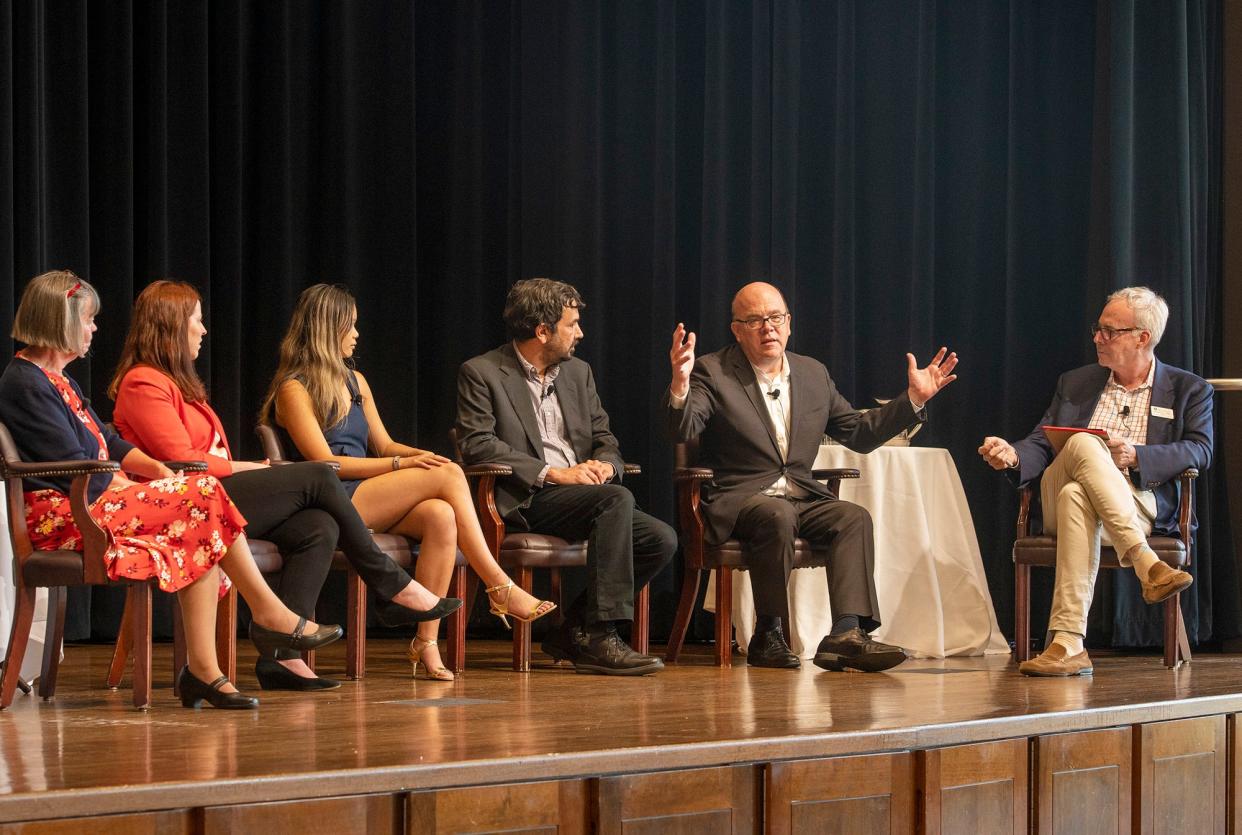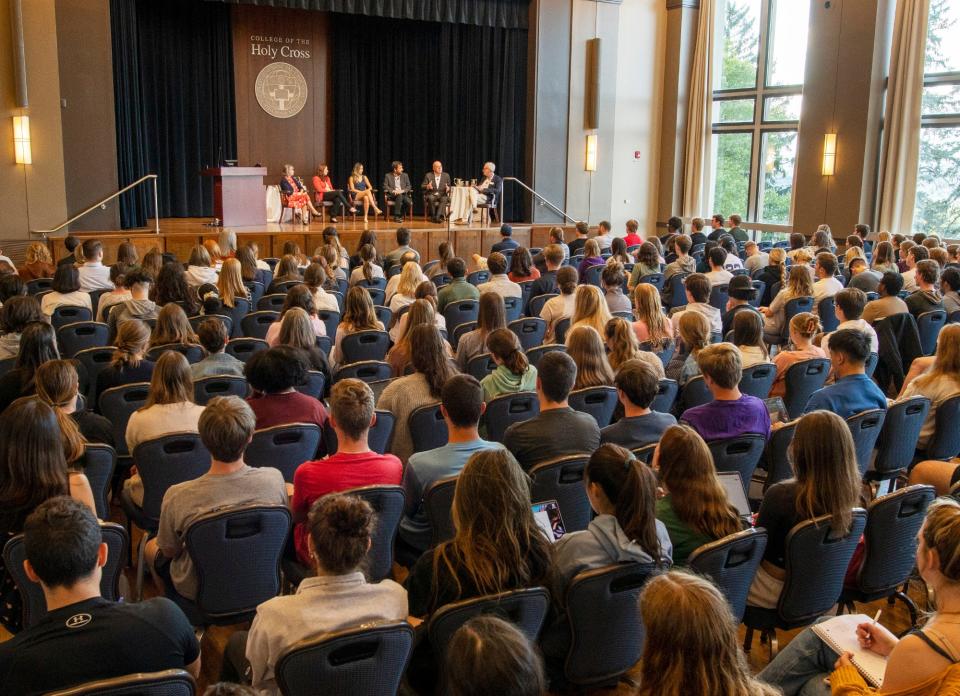'Hunger is costing us in so many ways.' Panel talks hunger ahead of White House conference

- Oops!Something went wrong.Please try again later.
WORCESTER — Sitting on stage at the Hogan Campus Center ballroom, U.S. Rep. James P. McGovern said to the nearly 100 College of the Holy Cross students in attendance that the United States has money and resources to end hunger, but lacks the "political will" to get it done.
In the lead up to his visit to Washington, D.C. Wednesday for the White House Conference on Hunger, Nutrition, and Health — a conference last held in the 1960s — McGovern and four other panelists answered questions about ending hunger in the United States.
"We have a hunger problem in this country," McGovern told the students. "We're now gathered at a time when close to 40 million Americans don't know where their next meal is going to come from."
The U.S. Department of Agriculture published a study that nearly 33.8 million households were "food insecure" in the United States in 2021.
According to the USDA website, food insecure describes households that, "were uncertain of having or unable to acquire enough food to meet the needs of all their members because they had insufficient money or other resources for food."
Taking turns to ask questions asked by moderator Thomas M. Landy, director of the McFarland Center for Religion, Ethics and Culture, the panelists each discussed the types of policy changes that could help end hunger, as well as how people can get involved at a local level.

McGovern was also joined by Erin McAleer, a Holy Cross alumna and CEO and president of Project Bread; Jean McMurray, executive director of the Worcester County Food Bank; Winton Pitcoff, director of the Massachusetts Food System Collaborative; and Phoebe Wong '26, a first-year Holy Cross student and a panelist for the White House conference.
Food drive, banks not enough
During the forum, McAleer and McMurray both said that programs like canned food drives and food banks could not solve the hunger issue alone.
It is important, McAleer said, that people also call their elected officials and encourage them to take more political action like co-sponsoring bills that would address hunger.
She used the universal free breakfast and lunch program for Worcester Public School students as an example.
The program not only guarantees students two meals each school day, but also helps alleviate some expenses for parents to be able to use that money in other places, she said.
McMurray said the government needs to link food policy with other areas like economic, health and education policy.
"As a country, we’ve come to accept some level of hunger that should be so unacceptable," she said.
Pitcoff said that the White House conference provides a good opportunity to show how policies can help solve the hunger issue.
Wong said she was excited about the White House conference and that she hopes there will be a discussion about getting food from farms to schools more easily.
Having taken a gap year with AmeriCorps last year, Wong worked for FoodCorps in East Hartford where she created lesson plans and educational tools for elementary school students and also conducted outreach about food access and health eating to the community.
She said she wants a food educator in every school because, "kids need to know about different things, starting with where it comes from and how it’s grown."
'Roadmap' to end hunger
McGovern said that when the conference ends, he hopes there will be a "roadmap" to end hunger and that things like universal free breakfast and lunch for all children, improving programs like the Supplemental Nutrition Assistance Program and embracing food as medicine, will be embraced.
Food as medicine, he said, is enabling hospitals to, "provide medically tailored meals, to provide produce prescriptions, to improve the quality of food that they feed to their patients in their hospitals."
The conference will not be an immediate fix to hunger, he said, but rather create a legislative strategy that assigns tasks to different groups attending about how they can contribute to ending hunger.
"Nobody ever asks me 'Where do we get the money to build another nuclear missile?'" McGovern said. "We cannot afford the status quo. Hunger is costing us in so many ways."
This article originally appeared on Telegram & Gazette: Panel including Rep. McGovern addresses ending hunger at Holy Cross

